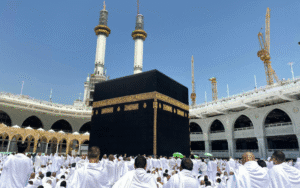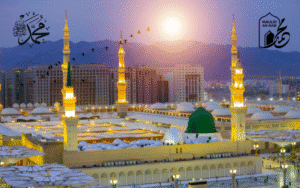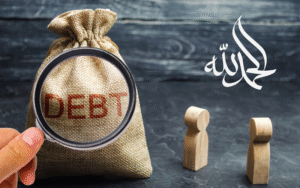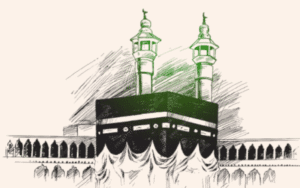Salat in Islam: Its Importance, Status, and Impact
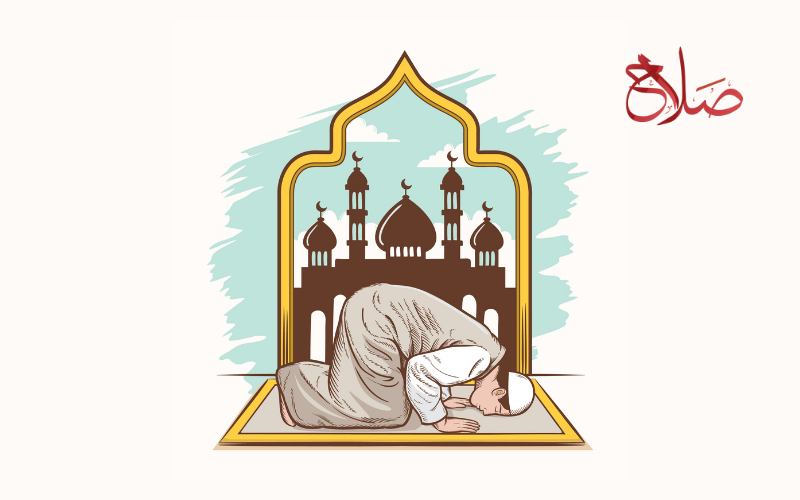
Among the fundamental pillars of Islam, Salat (the formal prayer) is one of the most significant. In fact, it is not merely a ritual but the ultimate means of establishing a connection between the Creator and His creation. The role of Salat is, therefore, immense in purifying the life of a believer, making it disciplined, and filling it with tranquility.
The Meaning of Salat
The Arabic word ‘Salat’ (صلاة) is derived from the root ‘Silah’ (صلة), which means connection or link. Through this act, a servant of Allah establishes a deep spiritual bond with their Lord and Sustainer.
In Islamic terminology, Salat refers to the specific method of worship taught by the Prophet Muhammad (peace be upon him) through his practical example. Essentially, it is a unique combination of specific words and actions, beginning with the Takbir (stating “Allahu Akbar” or “God is the Greatest”) and ending with the Salam (greetings of peace).
The Importance of Salat
Islam is the only complete way of life chosen by Allah. Accordingly, the second pillar of this system is Salat. To emphasize its importance, the Messenger of Allah (pbuh) said:
“Islam is built upon five pillars.”
(Sahih al-Bukhari and Muslim)
Among these five pillars, Salat holds the position right after the testimony of faith (Shahadah). It is also a defining characteristic of believers. For instance, Allah Almighty praises them in the Quran, saying:
الَّذِينَ يُؤْمِنُونَ بِالْغَيْبِ وَيُقِيمُونَ الصَّلَاةَ وَمِمَّا رَزَقْنَاهُمْ يُنفِقُونَ
“Who believe in the unseen, establish prayer, and spend out of what We have provided for them.”
(Surah Al-Baqarah: 03)
The early scholars used to say, “Whoever protects their Salat has protected their religion. And whoever loses their Salat will consequently lose everything else even more easily.”
Furthermore, the final advice of the Prophet Muhammad (pbuh) was also about prayer. Indeed, even as he was departing from this world, he warned his Ummah (community):
“Be mindful of your prayers.”
The last part of Islam that will be lost is Salat. In other words, the Prophet (pbuh) said:
“The bonds of Islam will be broken one by one. Whenever a bond is broken, people will grasp the next one. The first to be broken will be the ruling by Islamic law, and the last of them will be the prayer.” (Ibn Hibban)
On the other hand, for those who are negligent in their prayers, there is a stern warning. Allah Almighty says:
فَخَلَفَ مِن بَعْدِهِمْ خَلْفٌ أَضَاعُوا الصَّلَاةَ وَاتَّبَعُوا الشَّهَوَاتِ فَسَوْف يَلْقَوْنَ غَيًّا
“But there came after them successors who neglected prayer and pursued desires; so they are going to meet evil.”
(Surah Maryam: 59)
The Prophet (pbuh) also specifically highlighted the importance of the Asr (afternoon) prayer, saying:
“Whoever misses the Asr prayer, it is as if they have lost their family and property.” (A variant says, “his deeds are rendered null.”)
(Sahih al-Bukhari)
The Ruling on Salat
Performing the five daily prayers is Fardh (an absolute obligation) upon every sane and adult Muslim. Regarding this, Allah Almighty states:
وَأَقِيمُوا الصَّلَاةَ وَآتُوا الزَّكَاةَ
“And establish prayer and give zakah (charity).”
(Surah Al-Baqarah: 110)
Stressing the importance of performing prayers at their appointed times, Allah then says:
إِنَّ الصَّلَاةَ كَانَتْ عَلَى الْمُؤْمِنِينَ كِتَابًا مَّوْقُوتًا
“Indeed, prayer has been decreed upon the believers a decree of specified times.”
(Surah An-Nisa: 103)
Similarly, the Messenger of Allah (pbuh) instructed that the habit of prayer should be instilled from a young age:
“Command your children to pray when they are seven years old, and discipline them for it (if they refuse) when they are ten, and separate them in their beds.”
(Sunan Abi Dawud: 495)
The Status of Salat in Islam
Salat is described as the pillar of Islam; the structure of the religion stands upon it. For this reason, the Prophet (pbuh) said:
“The head of the matter is Islam, its pillar is prayer, and its peak is jihad.”
(Jami` at-Tirmidhi: 2616)
Moreover, on the Day of Judgment, the first thing a person will be held accountable for is their prayer. The Prophet (pbuh) said:
“The first of his deeds for which a servant of Allah will be held accountable on the Day of Judgment will be his prayers. If they are in order, then he will have prospered and succeeded. If they are lacking, then he will have failed and lost.”
(Jami` at-Tirmidhi: 413)
The Quran often mentions Salat alongside other major acts of worship to highlight its status:
Sabr (Patience):
وَاسْتَعِينُوا بِالصَّبْرِ وَالصَّلَاةِ
“And seek help through patience and prayer.”
(Surah Al-Baqarah: 45)
Sacrifice:
فَصَلِّ لِرَبِّكَ وَانْحَرْ
“So pray to your Lord and sacrifice [to Him alone].”
(Surah Al-Kawthar: 02)
Remembrance of Allah:
وَأَقِمِ الصَّلَاةَ لِذِكْرِي
“And establish prayer for My remembrance.”
(Surah Taha: 14)
The Virtues and Rewards of Salat
Countless rewards exist in this world and the hereafter for the one who performs Salat.
1) Salat is Light (Nur):
The Prophet (pbuh) said, “Prayer is light (nur).”
(Sahih Muslim: 223)
2) Sins are Forgiven: Salat erases sins, except for major ones. To illustrate, the Prophet (pbuh) gave a beautiful example:
“If a person had a river outside his door and he bathed in it five times a day, do you think he would have any filth left on him?” The people said, “No filth would remain on him whatsoever.” The Prophet (pbuh) then said, “That is the likeness of the five daily prayers, with which Allah wipes out minor sins.”
(Sahih Muslim: 667)
3) it is an Assurance of Paradise: For those who are diligent and humble in their prayers, there is the promise of Jannah al-Firdaus (the highest level of Paradise). As Allah says:
قَدْ أَفْلَحَ الْمُؤْمِنُونَ الَّذِينَ هُمْ فِي صَلَاتِهِمْ خَاشِعُونَ… وَالَّذِينَ هُمْ عَلَىٰ صَلَوَاتِهِمْ يُحَافِظُونَ أُولَٰئِكَ هُمُ الْوَارِثُونَ الَّذِينَ يَرِثُونَ الْفِرْدَوْسَ هُمْ فِيهَا خَالِدُونَ
“Certainly will the believers have succeeded: They who are during their prayer humbly submissive… And they who carefully maintain their prayers – Those are the inheritors, who will inherit al-Firdaus. They will abide therein eternally.”
(Surah Al-Mu’minun: 1-2, 9-11)
A Means of Attaining Proximity to Allah
Salat is a spiritual ascension (Mi’raj) for the believer, through which one can draw closest to Allah. Specifically, the state of prostration (Sajdah) is the peak of this closeness. Allah Almighty says:
وَاسْجُدْ وَاقْتَرِب
“Prostrate and draw near [to Allah].”
(Surah Al-‘Alaq: 19)
The Prophet (pbuh) further said:
“The closest that a servant is to his Lord is when he is in prostration. So, increase your supplications in it.”
(Sahih Muslim: 482)
The Impact of Salat on a Muslim’s Life
Salat is not just an act of worship; rather, it has a positive and far-reaching impact on a person’s life.
For example, it provides Protection from Immorality: Properly performed prayer prevents a person from engaging in shameful and evil deeds. As Allah says:
إِنَّ الصَّلَاةَ تَنْهَىٰ عَنِ الْفَحْشَاءِ وَالْمُنكَرِ
“Indeed, prayer prohibits immorality and wrongdoing.”
(Surah Al-‘Ankabut: 45)
Additionally, it fosters Mental Peace and Resilience: Salat eliminates anxiety and provides the strength to be patient during hardship. Allah says:
إِنَّ الْإِنسَانَ خُلِقَ هَلُوعًا إِذَا مَسَّهُ الشَّرُّ جَزُوعًا وَإِذَا مَسَّهُ الْخَيْرُ مَنُوعًا إِلَّا
“Indeed, mankind was created anxious: When evil touches him, impatient, and when good touches him, withholding [of it], except the observers of prayer – those who are constant in their prayer.”
(Surah Al-Ma’arij: 19-23)
Finally, it promotes Energy and Positivity: Salat protects a person from the deceptions of Satan and makes them refreshed and energetic at the start of the day. The Prophet (pbuh) explained:
“During your sleep, Satan ties three knots at the back of your head… If you wake up and remember Allah, one knot is undone. If you perform ablution, the second knot is undone. And if you pray, the third knot is undone, and you will wake up energetic and in a good state of mind. Otherwise, you will wake up in a bad state of mind and feeling lazy.”
(Sahih al-Bukhari: 1142)
Conclusion
In short, Salat is truly an inseparable part of a believer’s life. After all, it is the pillar of religion, the key to Paradise, and the primary means of attaining the pleasure of Allah. Therefore, it is incumbent upon every Muslim to perform the prayer on time, with humility, and by fulfilling all its conditions. Only through this can we achieve true success in this life and the hereafter. May Allah grant us all the ability to do so. Amen.
Frequently Asked Questions
Why is Salat so important in Islam?
Salat is the second pillar of Islam and a defining characteristic of believers. The article notes that the Prophet (pbuh) said the first thing a person will be held accountable for on the Day of Judgment is their prayer.
What is the ruling on Salat?
Performing the five daily prayers is an absolute obligation (Fardh) upon every adult and sane Muslim. Prayer has been decreed upon believers at specified times.
What are the virtues of performing Salat?
Salat has countless rewards. It is described as a light, it helps to erase sins, and for those who are diligent and humble in their prayers, it is a promise of Paradise.
How does Salat impact a Muslim's life?
Salat has a positive, far-reaching impact. It protects a person from immorality, fosters mental peace, provides resilience during hardship, and makes a person feel energetic and positive.


